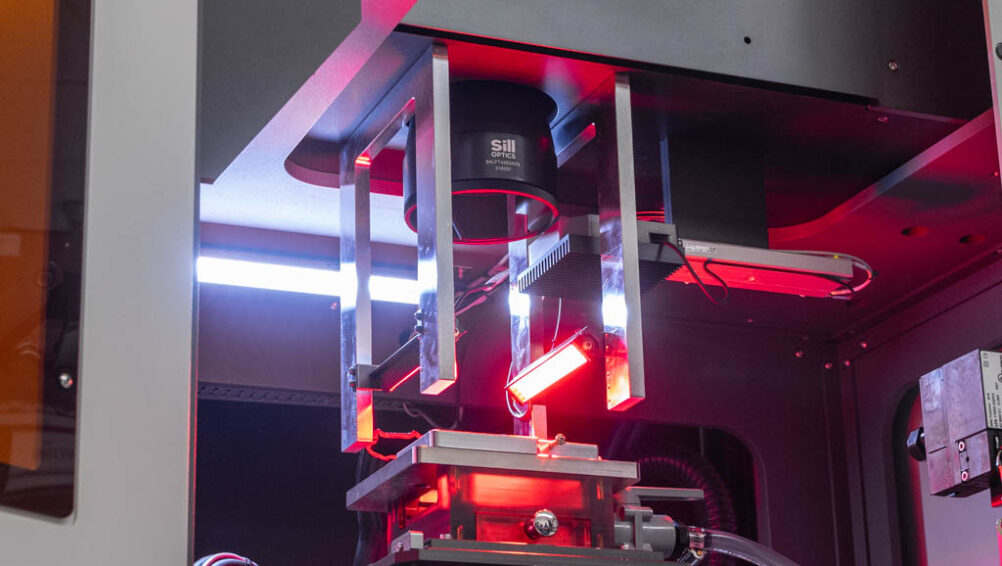Industrial lasers are used across a broad spectrum of industries and could potentially have dozens of unique industry-specific applications. This wide array of applications can often make it difficult to find the right laser system to meet your needs.
So, as you consider the laser options on the market, whether you’re looking for a laser marking, cutting, drilling, welding or other processing system, it’s important to not only understand the different technology available, but also the different types of companies that provide laser solutions within the industrial laser space.
This guide looks at two types of organizations where you can consider buying an industrial laser solution: laser integrator and laser manufacturer.
What is a laser integrator?
A laser integrator is a specialized provider of industrial laser solutions. They do not manufacturer the laser sources and parts, rather they identify the components necessary for the application and specific customer. A laser integrator typically works closely with clients to understand their specific needs to design and build a custom solution.
What is a laser manufacturer?
A laser manufacturer designs and constructs proprietary laser machines. From soup to nuts, they manufacture the laser source, controls, and other related technology. Depending on the manufacturer, they will have different models and types of lasers to suit different applications. These lasers are typically sold as stand-alone machines and it’s up to the buyer to integrate the machines into their wider systems.
5 Distinct Differences Between a Laser Integrator & a Laser Manufacturer
When a company sets out to purchase laser technology, they’re looking to fulfill a manufacturing requirement. Not only does the laser have to do the job they require, but also complete the job with adequate speed and quality.
There are five distinct differences to working with a laser integrator over purchasing directly from a laser manufacturer:
1. Options for Laser Products
It’s no secret, lasers are expensive machines. A laser manufacturer can spend years researching and developing their product. Because of the investment of time and resources, they have a clear imperative to sell those machines.
Alternatively, a laser integrator isn’t bound to a single catalog of products. A laser integrator also does extensive research and development, but they have the freedom and flexibility to purchase any laser on the market. They have tested and experimented with a wide variety of laser solutions and manufacturer’s products.
While manufacturers often have solutions for a variety of laser applications, there is a best-in-class (and worst-in-class) solution for that application. A laser integrator is able to provide its clients those insights and ensure they purchase the best solution possible.
2. Integration into Greater Systems
Companies, whether they’re in the pharmaceutical, PCB, automotive or electronics industry, likely have complex systems in their facilities. An industrial laser is only one part of that system, yet it must be seamlessly integrated into existing system to drive efficiency and ensure continuity.
A laser integrator works with client to see the big picture, then design and build a laser solution, which may include automated and robotic part handling and/or vision and validation systems.
A laser manufacturer specializes in building proprietary laser technology and machinery. It’s typically up to the client to then integrate their new laser into their facility.
3. Familiarity with the Laser Market
As we mentioned above, a laser manufacturer has invested interest in selling you their products. A laser integrator is not similarly tied to specific manufacturers or products; they consider all viable laser technologies and manufacturers and do independent testing on the technology.
The heart of an industrial laser is its laser source. A laser integrator has worked with and tested multiple lasers available on the market. They understand the strengths and weaknesses of different manufacturers.
After establishing the optimum type, wavelength and laser power, a laser integrator can recommend the best manufacturer and model.
4. Capability to Build a Specialized Solutions
Very few laser manufacturers want to get involved in creating customized solutions for customers. It’s not a cost-effective endeavor for them. However, there are many cases where a standard laser simply won’t fulfill the manufacturing requirements outlined by the client.
That’s where a laser integrator may be a better option. If an off-the-shelf laser is not able to meet your needs, a laser integrator can modify or develop one that will.
5. State-of-the-Art Solutions
Laser manufacturers have in-house research and development teams that work diligently on the next iteration of their products and technology.
Laser integrators experiment with emerging technologies (across manufacturers) to understand the industry landscape and keep up with the latest trends.
Testing new laser technology across industry needs and applications allows laser integrators to have a solid understanding of the marketplace and the capabilities of different laser systems. Leveraging that expertise with a client’s specific challenge in mind allow them to create a solution using the best-in-class technologies.
Final Thoughts
Laser technology is a substantial investment for most companies and they want assurances a laser system will not only integrate well with their existing workflow, but offer a return on investment.
For many applications, standard lasers direct from a laser manufacturer’s catalog are able to provide a satisfactory solution.
For specialized applications and complex facilities, consider using a laser integrator, such as Control Micro Systems.
Check out our additional Industrial Laser Buying Guide resource, which looks at six must-ask questions businesses should ask before purchasing an industrial laser.

